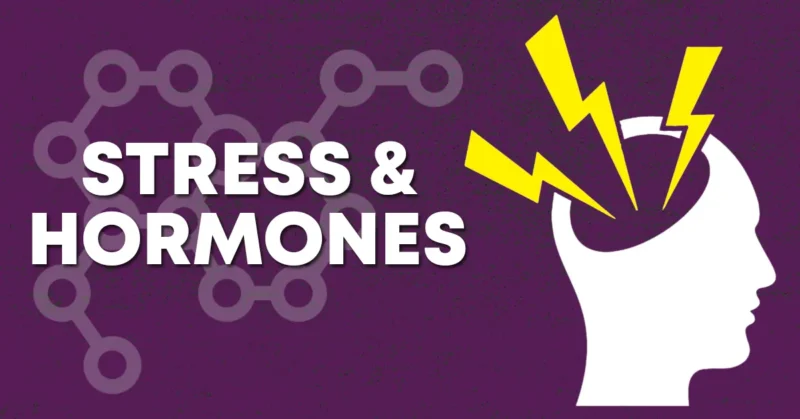Stress is the silent villain wrecking sleep, mood, and waistlines. The culprit? A little hormone controlling energy, metabolism, and, unfortunately, belly fat storage. If mornings feel exhausting instead of refreshing, your stress response might be out of sync. The best way to find out? Measure it yourself. No need for expensive lab visits—reliable methods exist for checking it right in your own space.
Key Highlights
- The hormone fluctuates throughout the day, peaking in the morning.
- High or low amounts lead to sleep disruption, anxiety, and weight gain.
- Saliva tests offer the most accurate at-home assessment.
- Simple daily habits can help restore balance naturally.
- Tracking patterns is key to better stress management.
The Most Accurate Way to Test at Home Without Visiting a Lab

Saliva tests provide the most precise way to measure daily stress hormone fluctuations. Unlike blood tests that offer a single snapshot, a diurnal 24-hour cortisol test tracks changes throughout the day, providing deeper insights into hormonal balance. For those wondering how to test cortisol levels at home, a trusted option is a four-sample saliva test, which allows users to check their hormone patterns without leaving home.
To get the most accurate results:
- Collect saliva samples at four different times to reflect natural fluctuations.
- Avoid eating or drinking right before taking the samples.
- Follow instructions carefully to prevent contamination.
- Ship the samples to a certified lab for analysis.
- Review the report for insights on how daily stress impacts energy levels and overall health.
This method offers a complete picture of how well the body regulates stress throughout the day.
Why Timing Matters More Than the Actual Numbers
A single reading doesn’t reveal much. What truly matters is the pattern over time. The body’s natural rhythm dictates that stress hormone levels should be highest in the morning and gradually decrease throughout the day. When this cycle is disrupted, issues such as poor sleep, anxiety, and unexplained weight gain arise.
For instance, people experiencing extreme fatigue in the morning yet feeling wide awake at night might have an irregular cycle. This pattern can lead to mood swings, irritability, and difficulty concentrating. Testing at multiple points helps determine whether the body follows a healthy rhythm or if it’s off track.
Many people assume they need to lower stress hormone production altogether, but in reality, it’s about maintaining balance. Too little can cause chronic fatigue, while too much can increase fat storage and impact heart health.
Symptoms That Indicate You Should Check Your Stress Hormone

Certain signs indicate that testing could be beneficial. If any of the following sound familiar, it may be time to assess your body’s response to stress:
- Sudden weight gain, especially around the midsection
- Waking up exhausted even after a full night’s sleep
- Increased anxiety and difficulty managing emotions
- Strong sugar cravings and fluctuating blood sugar levels
- Frequent colds due to a weakened immune system
Understanding these warning signs allows for targeted lifestyle adjustments to restore balance.
DIY Morning Wake-Up Test: No Equipment Needed
Not ready for a full test? A simple way to check if your body follows a proper rhythm is by evaluating energy levels first thing in the morning. Immediately after waking up, rate how refreshed you feel on a scale from 1 to 10.
- 9-10: Your body likely maintains a proper stress response.
- 6-8: You might experience slight imbalances, but nothing extreme.
- 1-5: Your cycle may be off, and further testing could be useful.
If you frequently wake up feeling unrefreshed, even after eight hours of sleep, your body might not be regulating stress properly. This small test helps gauge whether further assessment is necessary.
How Blood Sugar Fluctuations Can Signal a Cortisol Problem
Blood sugar and stress hormones work closely together. If your energy levels fluctuate wildly throughout the day, stress hormone imbalances could be to blame. Many people experience mid-afternoon crashes, intense sugar cravings, or feel shaky and irritable when they go too long without eating.
A few telltale signs include:
- Feeling jittery or lightheaded between meals
- Energy spikes after consuming high-carb meals
- Intense cravings for sugar or caffeine in the afternoon
If any of these apply, tracking daily patterns could reveal if your stress response is interfering with metabolic health.
The Best Time to Exercise for a Healthy Hormonal Rhythm
Exercise plays a major role in regulating stress hormones, but timing matters. For some, morning workouts help stabilize the cycle. Others find that afternoon sessions prevent mid-day crashes. The key is recognizing personal energy patterns.
A few general guidelines:
- Morning workouts: Best for those who wake up feeling energized and ready to move.
- Afternoon sessions: Ideal for those who experience energy dips around mid-day.
- Evening training: Can be beneficial, but should be avoided if sleep issues are present.
Over-exercising can elevate stress levels, making recovery just as important as the workout itself.
Foods That Support a Balanced Stress Response

Diet plays a significant role in stabilizing energy. The right foods promote hormonal balance, while the wrong ones make imbalances worse.
The best foods include:
- Leafy greens and nuts for magnesium support
- Protein-rich meals to maintain stable blood sugar
- Healthy fats like avocado and olive oil for sustained energy
On the other hand, high-sugar snacks and processed foods spike insulin, creating additional stress on the body. Reducing caffeine, especially in the afternoon, can also prevent sleep disturbances linked to elevated stress hormones.
Sleep Hygiene Tricks That Prevent Hormonal Chaos
A solid nighttime routine can reset the body’s natural cycle. Poor sleep habits often lead to irregular hormone production, which causes increased stress, fatigue, and mood swings.
To improve nighttime recovery:
- Limit screen time: Blue light exposure disrupts melatonin production.
- Keep the bedroom cool: A cooler temperature signals the body to wind down.
- Try magnesium supplements: They help promote relaxation and better sleep.
If sleep remains disrupted despite good habits, testing may provide insights into underlying hormonal imbalances.
Supplements That Actually Work (Without Wasting Money)

Many supplements claim to reduce stress, but only a few have strong scientific backing. Among the most effective:
- Ashwagandha: An adaptogenic herb proven to regulate stress responses.
- Phosphatidylserine: Helps lower evening levels for improved sleep quality.
- Vitamin C: Supports adrenal health during prolonged stress.
Adding targeted supplements may help, but they should be used alongside lifestyle changes for the best results.
How to Track Progress After Making Lifestyle Changes
Once changes are in place, tracking progress ensures adjustments are working. Signs of improvement include waking up refreshed, experiencing fewer energy crashes, and noticing reduced anxiety. Keeping a simple log of sleep patterns, energy levels, and mood fluctuations helps determine whether the body is returning to balance.
At-home testing provides an easy way to monitor stress hormones without a doctor’s visit. Combining saliva tests with daily habit tracking allows for a better understanding of how stress impacts overall health. If mornings still feel exhausting, deeper investigation might be the next step.
Related Posts:
- Gambling Regulation Levels Across Europe – An Examination
- How to Pass Your M1 Driving Test the First Time
- Ace Your Motorcycle Theory Test: A Comprehensive…
- Should you prepare for the numerical reasoning test?
- Hepatitis B Test - When It Is Necessary?
- Is the Irish Driving Theory Test Hard? 6 Things to Know








